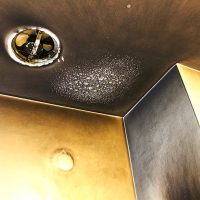Hidden Damages In Fire Claims And How To Address Them With Your Insurer

If a fire breaks out on your property for any reason, your chief concern is containing the fire. Next is to repair the immediate damage and make your home livable again. However, even after you think the needed repairs have been made, there can be more behind the surfaces. Unseen, yet dangerous, defects can lurk in your home well after a fire has been put out. These include:
- Smoke and Soot Damage
Smoke and soot are one of the main sources of damage after any type of house fire. This damage can be obvious in some ways, and invisible in others. Stained walls, carpets, and upholstery are clear indicators of smoke damage, and foul odors make this damage hard to ignore as well. However, soot particles can linger – invisible and odorless – well after a fire occurs. When these particles are inhaled or absorbed by the body, soot can cause short-term and long-term health effects. Health damage can include long-term respiratory illnesses or even cancer. A professional cleaning service with experience in this area can usually treat smoke and soot damage for vigilant homeowners. Documenting these repairs and connecting them to the source of damage will help a homeowner get fair compensation for the costs involved.
- Structural Damage
Even if there is no apparent damage to the exterior of a roof or wall, wood supporting these structures could have sustained fire or water damage during the incident and response. Structural steel and concrete can also suffer destabilizing heat damage that may not be visible to the untrained eye, or without a sample being tested. Damage to wood framing and roof supports, or steel and concrete can cause long-term stability issues that lead to damage well after a fire has occurred. Extreme heat from a fire can also warp window glass and framing, causing moisture and leakage issues down the road.
- Water Damage
Water puts out fires, but it can also create a series of other problems. Water exposure can weaken any wood within your home, damage drywall, and seep into electrical outlets and other areas where water should never be. Structural issues, fire hazards, and mold contaminants can all stem from water that was used to put out even a small fire. Homeowners must keep accurate records of any water damage associated with a fire, as well as the costs and services involved with repairing the issue.
- Mold
Mold is a health hazard and a home safety issue. Mold spores can float, unseen, through the air and into your lungs, causing respiratory issues and chronic illness. Unfortunately, mold is also one of the most common after-effects of a house fire, as water used to put out the fire can leave moisture behind. This moisture can lurk under carpets, fixtures, and even behind drywall without a homeowner noticing. Left unchecked, these issues can lead to a severe mold contamination that endangers the health of anybody in the house. Due to the intensive – and expensive – nature of mold damage clean-up, insurers may fight back against paying out for this aspect of a fire damage claim.
- Damage to Plumbing, Gas, and Electrical Systems
Another hidden threat from fire damage can be damage to gas and plumbing pipes, and electrical wiring. Since most of these systems are covered behind walls or under floors, homeowners won’t see this damage upon a basic inspection. However, damage to these systems can cause dangerous leaks of gas and sewer fumes and frayed wiring that could cause another fire if left unrepaired.
What Homeowners Should Do After a Fire
The best thing a property owner can do after an unfortunate fire event is to document all damage and have the entire property inspected. While some areas of the home may seem fine after an initial walk-through, deeper inspection can reveal serious and even dangerous defects caused by fire and the water used to put it out.
Frequently, an insurer will try to deny or downplay some elements of a fire damage claim other than the immediate damage. Proper inspections, repairs, and documentation – with timely notice to your insurer – will help you build a successful claim. If issues continue to arise, a Florida fire damage attorney can help you support your claim and get the attention you need.
Our Florida Fire Damage Attorneys Can Help You Get Fair Compensation for All Parts of Your Fire Damage Claim
Experiencing a house fire and its aftermath is what no homeowner wants to go through. When it does happen, and your insurer plays games or tries to minimize your claim, it may be time to obtain legal help. The Daytona property damage attorneys at Bundza & Rodriguez, P.A., have years of experience working with fire damage claims and the issues that can arise in those claims. Call our Daytona law offices at 386-252-5170, or schedule a consultation with our Daytona Beach property damage attorneys today to see what our legal team can do for you.
Source:
ncbi.nlm.nih.gov/pmc/articles/PMC5492873/

